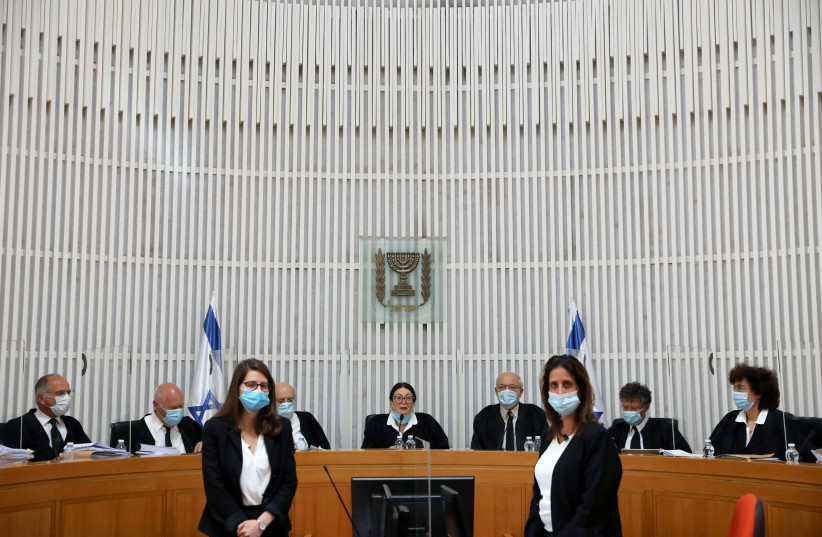The Supreme Court on Monday heard the appeal of Amiram Ben-Uliel of his conviction and life sentences for the terrorist arson murders of the Palestinian Dawabshe family in Duma in 2015.
Lawyers for Ben-Uliel told the justices that the Shin Bet (Israel Security Agency) tortured him during his interrogation, which should have invalidated his confession and led to his acquittal.
Although Ben-Uliel’s defense team made similar arguments to the Lod District Court, new lawyers Avigdor Feldman and Yehoshua Resnick said that those lawyers fought moreover whether the confession was true or not, and did not try to disqualify it on the principle that it should be inadmissible due to torture simply because torture was used.
In the lower court decision, the judges did disqualify some of Ben-Uliel’s confessions.
However, they left in place his confessions that came before or 36 hours after he was subjected to torture/enhanced interrogation by the Shin Bet.

In addition, Resnick said that the defense team below did not force the lower court to address the fact that even if the Shin Bet’s tactics were “only” enhanced interrogation, this was still illegal because there was no “ticking bomb” exception – as opposed to considering it to be torture, which is always illegal.
When the Supreme Court prohibited torture in interrogations in 1999, it allowed an exception of more limited enhanced interrogation in cases where lives were imminently at stake.
Yet, Resnick said that for the first 17 days of interrogation, the Shin Bet did not ask Ben-Uliel any questions about future potential threats, only about the prior Duma incident in which he was a suspect.
Resnick said that the Shin bet only later asked him about future potential plots to try to cover for the fact that they had used enhanced interrogation, and that this point was not raised before the lower court.
In March 2021, the defense filed the appeal against his conviction and multiple life sentences from September 2020.
The defense also noted an Uvda interview of Deputy Attorney-General Raz Nizri in January 2020 which could open up law enforcement to having to share additional information that it had not revealed to date.
The July 2015 attack killed 18-month-old Ali and his parents, Sa’ad and Riham, and destabilized Israeli-Arab relations throughout the region.
An unusual aspect of the appeal is that Feldman usually defends Palestinians and causes on the political Left.
However, Feldman was the lawyer who convinced the High Court to outlaw Shin Bet interrogations torture in 1999, so he has a special connection to the issue of whether it impacts impacting those on the Right or the Left.
Besides Ben-Uliel’s confession, the lower court said it was convinced by his voluntary physical reconstruction of the crime at the scene of the murders.
In addition, the court cited Ben-Uliel’s refusal to testify in his own defense.
The court wrote, “The defendant described the scene of the crime in extreme detail in his confessions... which was later clarified to be meticulously accurate... the defendant carried out a reconstruction with great accuracy and which was close to identical to his confessions – something which rebuts the claims” that he was guessing or tipped off in the moment by the Shin Bet investigators.
For months after the murder, the Shin Bet performed a massive manhunt and investigation but turned up empty-handed.
Former Shin Bet chief Yoram Cohen has told The Jerusalem Post that he fundamentally altered the entire approach toward Jewish terrorism against Palestinians, taking a much harder stance and investing far more resources.
Then-prime minister Benjamin Netanyahu and then-defense minister Moshe Ya’alon made frequent statements about the severity of the incident and assured regional partners in the Palestinian Authority, Jordan, Egypt and globally of their commitment to bringing the perpetrators to justice.
When the Shin Bet finally apprehended Ben-Uliel as well as a minor who was accused of conspiring with him regarding the murders, the situation was viewed as so desperate that they used torture/enhanced interrogation to get the defendants to confess.
